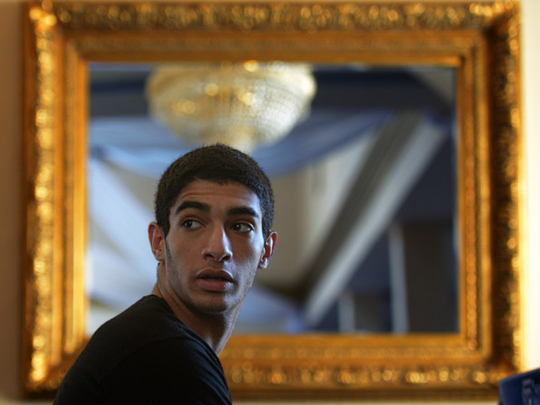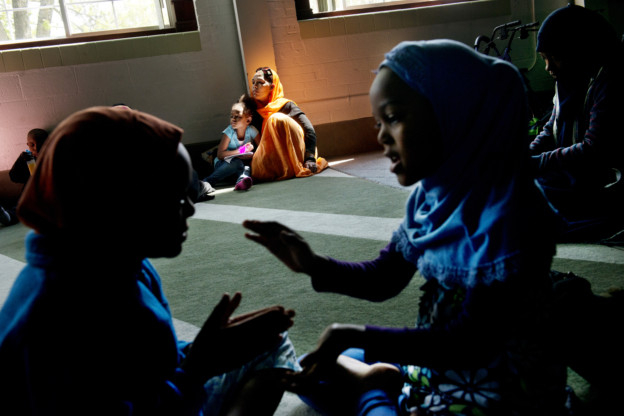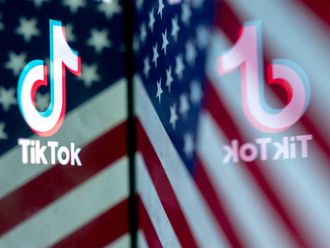
WASHINGTON: In 2001, Sami Al Xaharna was a 14-year-old in Saudi Arabia and not very religious. Four years later, he moved to Maryland and was immediately hit by a wave of questions about his identity and beliefs.
After hearing so much criticism of US foreign policy, what was he to make of US flags flying in front of mosques? How could he balance his affection for American culture with the stereotyping of Islam he saw all over the television news? Were the rituals and clothing he grew up with actually more cultural than religious? What did he believe about Islam?
“I was playing catch-up. People who come here young are playing catch-up in terms of exploring who they are and where they are now,” said Al Zaharna, 26, now a married software developer and observant Muslim.
In its turn towards radicalisation and violence, the story of the Muslim brothers accused in the Boston bombings was an aberration. But its theme of immigration followed by a complex search for identity in post-9/11 America echoes a process familiar to many young Muslims.
These newcomers must simultaneously navigate moving to another country, growing up and determining what Islam means in a culture in which it has become a heated topic everywhere from presidential debates to late-night talk shows.
Fortunately, the attacks of 2001 also gave birth to a broad infrastructure of youth imams, sports leagues, scouting groups and other forums to assist Muslim youths in their quest for identity.
Some of these young Muslims come from homelands where Islam was more about culture and are startled to be asked to define their theological beliefs.
Some feel their entire identity is being shaped by anti-Muslim rhetoric, while others struggle to make sense of the narrative that Muslims are under siege while what they see are Muslim immigrants around them thriving.
Secular trend
Responses vary, too, from becoming more traditionally observant to helping to build a more secular Islamic scene focused on such issues as human rights advocacy.
Where will it all lead? That’s open to debate. There are experts on Muslim youths who believe America is en route to a pluralistic, accepting brand of Islam. Others point to data indicating that young Muslims — immigrant and US-born — are far more likely than other age groups to see their faith as in conflict with modern life.
Muslims in Russia warned Dina Abkairova before she came to Boston, in 2004: Don’t say you’re a Muslim. But when she arrived at age 22, Abkairova found many Americans friendly. She also felt judged by some fellow Muslims, who criticised her for not praying enough. “I started questioning if I had the right to call myself a Muslim,” she said.
Then she connected with a group of more progressive Muslims. Their attitude was that “you’re Muslim if you say you’re Muslim. What really matters is to be open-minded and open-minded to other people’s choices. That really helped me to take a breath and say, ‘Phew, I’m normal.’”
Edina Skaljic came to Boston in 2000 as a 15-year-old refugee from Bosnia, where many Muslims were displaced or killed during the conflicts after the break-up of Yugoslavia in the early 1990s. Before 9/11, Skaljic was relieved to be in a peaceful environment for the first time in her life.
But the day after the attacks, a “white American” appeared in front of her locker at school. “‘Edina, are you going to kill me? Aren’t you from Bosnia, and isn’t that next to Afghanistan?’” she recalls the other girl saying. “I came nine months prior from a genocide, and now people were treating me like a criminal.”
Akbar Ahmad, a professor of Islamic studies at American University, who recently wrote a book on American Muslim identity, said that many young Muslim immigrants are transformed by religious freedom in the US.
“Because they’re in a free society, they’re able to go to the Quran itself or pick up the actual text,” enabling them to shape their beliefs, he said.
It is common to hear Muslim immigrants say that the post-9/11 spotlight and being asked, or challenged, about their faith has made them more devout. There’s been a spike, for example, in women and girls wearing the hijab, or head covering. For others, the search for identity has played out in a more secular way, with the creation of football leagues or weekly Bollywood-watching parties.
— Washington Post













